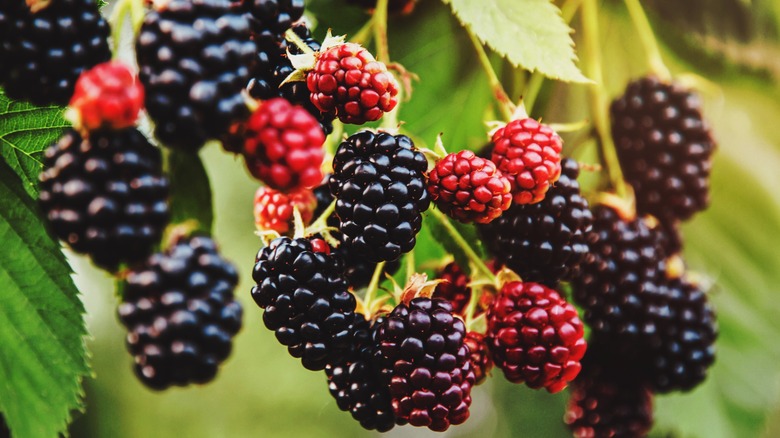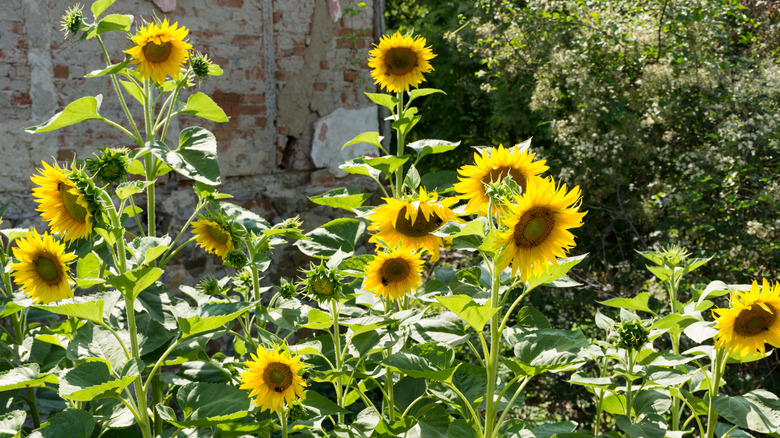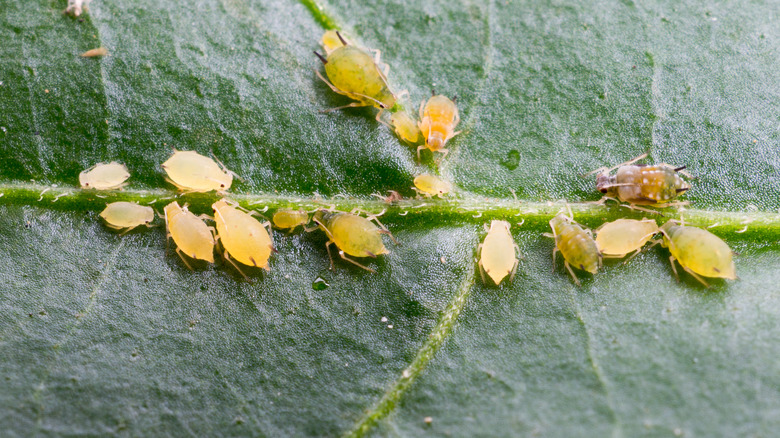Why Sunflowers Are Excellent Companions For Blackberries In The Garden
Blackberries are a popular choice for gardeners looking to grow a crop of versatile fruits that can be harvested and used in many different ways. Blackberries are used in a variety of delicious sweet treats and jams. You can even enjoy them in salads and cocktails, and the best thing about growing blackberries is that you can freeze them and enjoy your harvest all year round. The flowers are also useful for attracting more pollinators into the garden to benefit your other plants. If you're eager to grow fruit trees in your garden, or perhaps you're trying to work out the best ways to grow and care for your blackberry plant, it's useful to know that growing certain plants alongside your blackberries could help, and sunflowers make an excellent choice.
If this is a new concept to you, companion planting involves growing plants together that are mutually beneficial, helping to achieve balance naturally and organically. This might be to repel pests, reduce disease, or encourage pollination. Companion planting is particularly beneficial when growing edible plants, especially fruit-bearing plants that are tasty and likely to attract the wrong visitors to your garden. Using companion planting can be a great help for gardeners, leading to less work and improved crops. Here's why sunflowers and blackberries make great companion plants.
How blackberries benefit from sunflowers as companion plants
Blackberries are self-pollinating plants, meaning you only need one plant in your garden, which can be fertilized with its own pollen. But it still needs pollinators like bees and butterflies to help with the pollen transfer. Its own blossoms are designed to help with this, of course, but other flowers can also attract an abundance of pollinators. Sunflowers are perfect for this. They act as giant signposts, and are naturally designed to be visible from afar to flying insects looking for pollen. The large bright yellow petals tempt the insects in, and in the center, they find the jackpot – hundreds of small tubular flowers and plenty of nectar and pollen.
If you have a large garden, you can plant your sunflowers right next to your blackberries to make it super easy for the bees to find the plant and do their job. Sunflowers require the same growing environment as blackberries, so, as long as you have healthy soil and water regularly, they won't need to compete for resources. When planted strategically, the tall and robust sunflowers also act as a protective barrier against strong sun or winds that might otherwise damage blackberry vines.
Growing sunflowers as a trap crop to protect blackberries
Growing a blackberry crop is likely to attract a variety of unwelcome foragers, like rabbits, birds, squirrels, and even deer to your garden, as well as insects and pests that will feed on your crop of fruit and any other tasty edibles you are growing — you may find that you don't have much of a crop to harvest if you don't get there first. One method of dealing with this problem is to grow sunflowers as a trap crop.
Sunflowers can be planted in a kind of sacrificial way to lure pests that prefer to lay their eggs or feed on the leaves and stems of the sunflowers, instead of having them target the blackberries and affect your crop. This can be an effective way of naturally dealing with pest problems by encouraging natural assistance from the ecosystem — when the sacrificial trap crop becomes infested with pests, predatory insects like parasitic wasps and ladybugs will fly up to the dinner table, so to speak, and help to maintain the natural balance. Sunflowers are perfect for attracting any sap-sucking pests like aphids, which are known for feeding on blackberries. When planted strategically around a border, sunflowers can also form a barrier, stopping larger animals from getting to your tasty blackberries.


